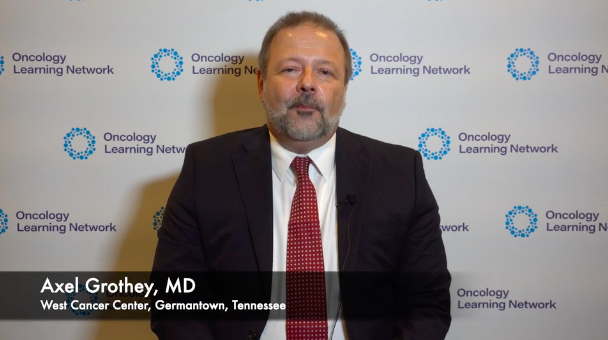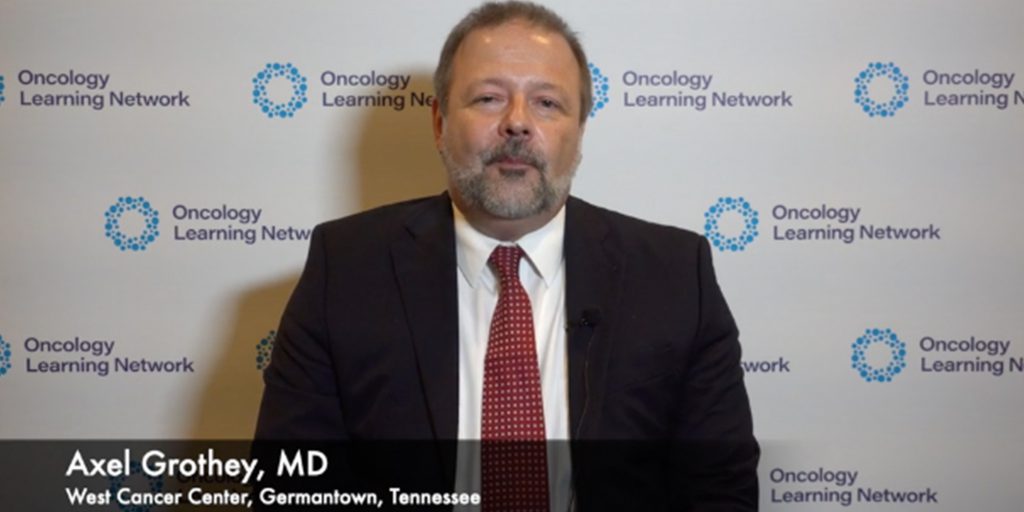At Great Debates and Updates in GI Malignancies, nationally recognized thought leaders take opposing sides on clinical, and sometimes controversial, topics currently disrupting the practice of gastrointestinal oncology.
Through comprehensive review of the latest clinical advancements in gastrointestinal malignancies, robust audience engagement, and ample discussion, participants will leave equipped with practical implications and applications to put into practice immediately.
Click the link to watch the entire interview with Dr. Grothey.
https://www.oncnet.com/2019-great-debates-and-updates-gi-malignancies-recap-axel-grothey-md

Transcript:
Dr. Axel Grothey: My name is Axel Grothey. I’m a GI medical oncologist at West Cancer Center in actually Germantown, Tennessee. I’m here at the Great Debates and Updates meeting in Gastrointestinal Malignancies in Chicago. It’s actually the first meeting we ever held in Chicago.
We had more than a decade of meetings in New York, and I believe this event has always been very engaging for people who attend the meeting. We split the agenda out into updates, just didactic lectures and debates about topics. We actually– the whole meeting is also in further enhanced by some non‑CME‑meetings, presentations about products which are potentially new to our audience.
For instance, ramucirumab in HCC or cabozantinib in HCC. Drugs that really make a difference for our patients. We have a mix of a CME coverage agenda with Debates and Updates and the non‑CME events. I think the overall two days are very educational for our audience and I can tell you that ‑‑ from a faculty perspective ‑‑ everyone is really engaged and people are looking forward to participating here.
This year, we’ll have two meetings in New York and Chicago. Next year, we’ll actually have three meetings in 2020. We’ll have New York, Chicago, and Los Angeles area. This is a great opportunity for people who would like to know more about GI malignancies in a very interactive, sometimes bantering fashion, about topics that are really highlighting where we are right now in GI malignancies. Please join us at these meetings. It’s definitely worthwhile.
What we’ve seen in recent years and what’s really dominating our discussions here are new treatment options in metastatic GI malignancies. We’ve seen new drug development in colorectal cancer, gastric cancer, bilial cancer, HCC, pancreas cancer, and neuroendocrine tumors.
More and more we’re linking drugs to biomarkers like molecular targets, molecular alterations. Of course, all this is further enhanced by the advent of immunotherapy in combination with chemotherapy, a single agent.
Here at the Great Debates meeting, we have critical discussions about the role of all of these new treatment options in various malignancies, but also the role of immunotherapy and with very up-to-date presentations and discussions about where do we really stand? I believe it’s fascinating to be in the field of GI oncology right now.
It’s a rapidly moving field and people really should come here and understand what experts are thinking, how to utilize all these novel treatment options, all the new diagnostic opportunities we have, including next generation sequencing, etc., to really help improve the outcomes of our patients by selecting the best therapies for them.

